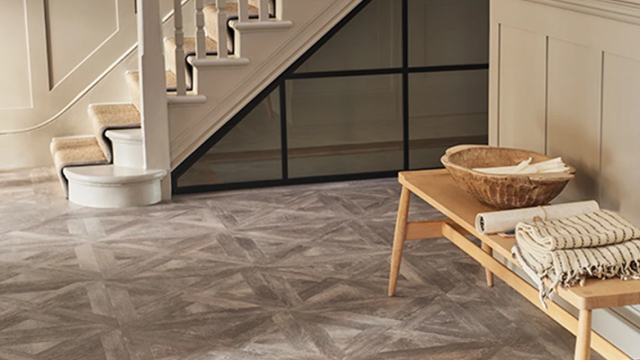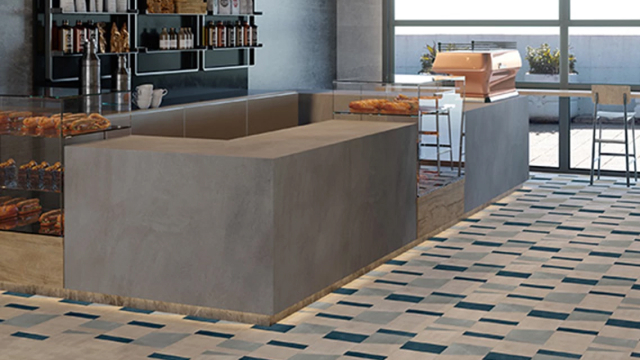Amtico's first
bio-attributed LVT flooring
Reducing our impact on the climate starts with the products we make. Which is why we’re proud to introduce Amtico Bio, our first bio-attributed LVT flooring.
Bio-attributed LVT is made with PVC from renewable biomass sources, which saves more than 90% of carbon emissions compared to the manufacture of standard fossil fuel derived PVC*.
When specified with one of our core LVT collections, we simply source the required amount of bio-attributed PVC to make the order. Working with the mass balance principle, just like the sale of green energy, we are setting the stage for a transition away from fossil fuel dependency.
*Based on LCA data from the European Council of Vinyl Manufacturers (ECVM) - June 2023

Tracked, traced and managed from forest to floor.
Award-winning Amtico Bio

TCF Award Winners

Designerati Award Winners

Housebuilder Product Awards Winners
Biomass Explained
We use carefully selected and audited sources of biomass to create the renewable ethylene that goes into our bio-attributed PVC.
Non-food biomass is a renewable organic material that originates from sources such as perennial grass and fast-growing trees. When trees of this kind are used in the paper pulping industry, one of the by-products is Crude Tall Oil (CTO) which can be processed into many useful carbon-based chemicals, including ethylene, which is used in the production of renewable PVC.

Used Cooking Oil (UCO) is another waste product that is a source of renewable ethylene. It contains no impurities and performs in the same way as ethylene from Crude Tall Oil.
Learn more about our process from forest to floor below.
Not all Biomass is the same
All our biomass sources are by-products of other production processes e.g. trees are not cut down specifically for the Crude Tall Oil used to create ethylene. This shouldn’t be confused with other processes like the production of wood pellets where trees are cut down to create the pellets to burn for energy production.
Similarly, processing used cooking oils (UCO) to create ethylene and other useful chemicals, actually improves problems of recycling and circularity as traditionally this oil would have been landfilled or disposed of in environmentally damaging ways. As the oil is already used in cooking, this also does not compete with food production.

When accountability matters, choose Amtico Bio
Using the Mass Balance principle, we carefully balance the amount of renewable PVC with the amount of low-carbon flooring we can make. The whole process is independently audited to achieve ISCC PLUS certification for total transparency.

Making flooring fit for the future
Amtico Bio can be specified across our Signature, Spacia, Form and Marine collections, including Safety and Acoustic. The bio-attributed PVC content varies across the collections. Please see the technical specs for more information.
Our contributions to a sustainable future for LVT flooring






